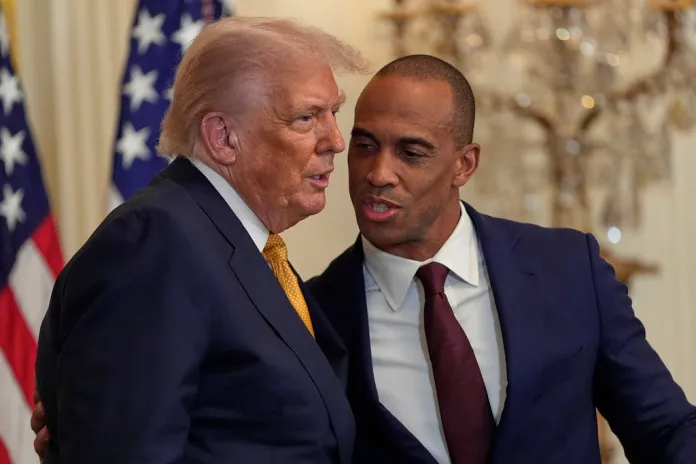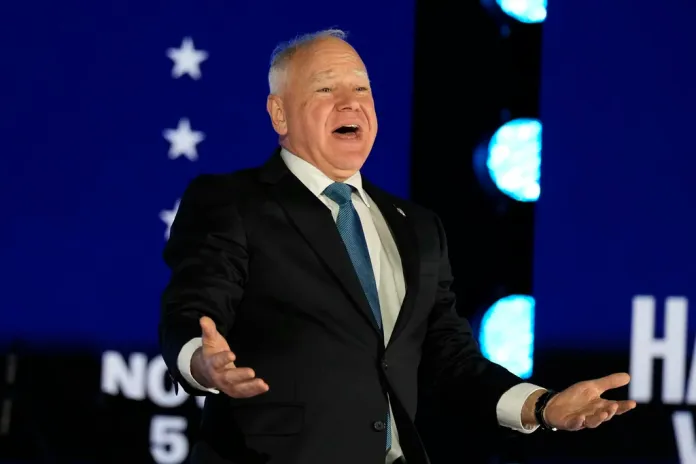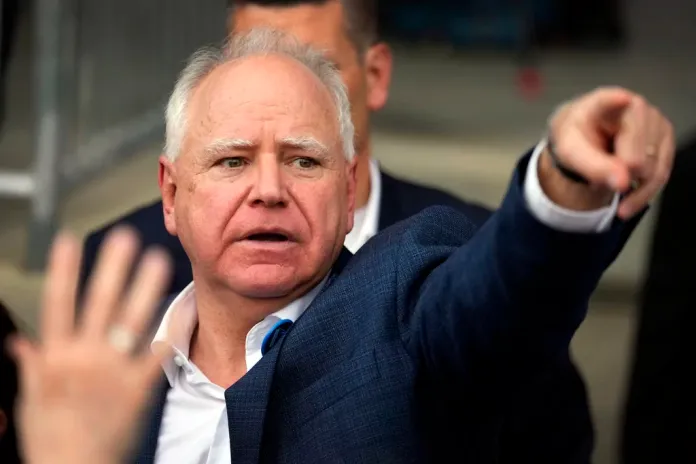Walz Let Rioters Burn Minneapolis While Harris Fundraised Their Bail
The article discusses the aftermath of the riots in Minneapolis following George Floyd’s death in May 2020, highlighting the city’s struggle with escalating crime and the impact on local law enforcement. As of May 2024, Minneapolis is grappling with an average of one car theft per hour and has seen a significant decline in police presence and morale. The police station on Lake Street remains vacant, surrounded by overgrown weeds and high fencing, with no plans for its reconstruction. Despite colorful murals trying to uplift the area, the persistent issues of drug use and homelessness remain evident. The city, which has not recovered from the destruction of 2020, now faces challenges in implementing a reformed law enforcement system aimed at promoting community engagement and addressing racial disparities. Governor Tim Walz faced criticism for his delayed response during the riots, which not only devastated Minneapolis but also inspired similar unrest in other U.S. cities.
Minneapolis, ground zero for the Defund the Police movement, is not the kind of place you park your car with confidence. Several years after George Floyd’s death on May 25, 2020, the city averages one car theft an hour.
The forsaken Minneapolis police station on Lake Street, abandoned by cops and ransacked by rioters in 2020, still sits vacant. High fencing and overgrown weeds surround the building. There are no plans to rebuild.
In May 2024, the Lake Street Minneapolis Police station that was destroyed by rioters in 2020 is still vacant.
Image CreditBeth Brelje
Colorful murals splashed on vacant businesses along Lake Street can’t hide the constant stink of dope in the air or prevent the rising crime rate. The homeless stand in line for free sandwiches some charity in a van distributes near Lake Street most days.
The police force is down in numbers and morale, as a “transformed” law enforcement system centered on “recognizing the humanity and civil rights of community members” and “addressing race-based policing” is being implemented through a consent decree between the city and the Minnesota Department of Human Rights.
Despite years to rebuild, Minneapolis has not healed since the 2020 riots that burned the city. Destroyed businesses are vacant. Towns flattened by tornados have recovered faster.
A still-abandoned business on Lake Street in Minneapolis in May 2024, where riots erupted in 2020.
Image CreditBeth Brelje
As mobs of rioters hurled bricks through windows and Molotov cocktails into buildings, Minnesota Gov. Tim Walz took criticism for being slow to respond. The unharmed looted stores unfettered, blocked highways, and intimidated the nation while Walz waited three days before finally activating the National Guard at 2:30 p.m. on Thursday, May 28.
Emboldened by his inaction, the unrest sparked copycat riots in other cities around the United States that continued night after night. Shocked Americans tuned in to the news in disbelief, watching as destruction reigned behind lying newscasters, some describing the scenes as “mostly peaceful.”
Walz was the first governor to let the city burn and since then, he has not made Minneapolis whole again. He has kept busy with other priorities, including signing a bill to allow abortion without restriction and signing a law making it more difficult for parents to keep sexually explicit books out of public and school libraries.
Walz’s efforts have earned him a promotion to Democrat vice presidential candidate.
“As a governor, a coach, a teacher, and a veteran, he’s delivered for working families like his,” his running mate, Vice President Kamala Harris, said of Walz in a Tuesday announcement on social media.
For her part, Harris did nothing to quell the 2020 mob in Minneapolis. Instead, she effectively endorsed the destruction by encouraging the public to donate to the Minnesota Freedom Fund to help bail rioters out of jail.
Harris has also promoted defunding police, a position that is hard to square with her current messaging that she is a tough-on-crime prosecutor.
Beth Brelje is an elections correspondent for The Federalist. She is an award-winning investigative journalist with decades of media experience.
" Conservative News Daily does not always share or support the views and opinions expressed here; they are just those of the writer."




